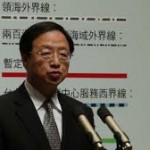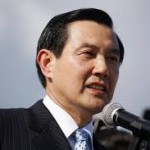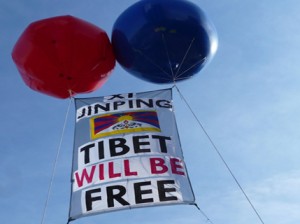Taiwan is set to proceed with a controversial trade pact with China despite showings of public discontent.
Taiwan’s Prime Minister, Jiang Yi-huah, spoke to protesters gathered outside Parliament and expressed an unwillingness to change course. He stated that the pact would help Taiwan’s efforts towards liberalisation and internationalisation. Protesters, on the other hand, reject this claim and say that the deal will actually hurt Taiwan’s economy while leaving it vulnerable to political pressure from China which already considers Taiwan a part of its territory, regarding it as a renegade province merely awaiting reunification.
Approval of the pact by Parliament would allow for greater economic integration between the two countries. The countries have long been rivals since splitting 65 years ago following a civil war. The deal would open 80 of China’s service sectors to Taiwan and 64 of Taiwan’s sectors to China—a move which is said to be integral to economic progress.
“I tell you once again, with a responsible attitude, that this is completely for the sake of Taiwan’s economic future,” said President Ma Ying-jeou .
Set to face a final review in Parliament on April 8, the trade pact was first signed in June 2013, but cannot go into effect until ratified. Although it passed its first parliamentary hurdle on March 17 following approval by a committee, protesters have rejected this, insisting that the approval was illegal. In response, the Prime Minister has promised to support an article-by-article review of the pact, but this will not satisfy protesters who are calling on the legislature in Taipei to reject the deal outright.
On March 18 more than 200 student protesters stormed the main chamber in Parliament where they remained until March 24 when they were ousted by police using batons and water canons. The students’ emblem was a sunflower, the symbol of hope, and their demonstration was largely peaceful.
Taiwan’s ruling Kuomintang party accuses the opposition Democratic Progressive Party (DPP) of rallying anti-China sentiments to sway favour against the trade deal. The DPP has expressed its fear that the deal will ultimately harm Taiwan’s economy, but says it lacks the numbers to block its final passage. However, three DPP legislators have launched a hunger strike in protest.
President Ma Ying-jeou has overseen a marked thaw in relations with Beijing since coming to power in 2008. Last month, Taiwan and China held their highest-level talks in six decades, the first of such talks since their split in 1949. Although his stated aim is to maintain economic competitiveness, many in Taiwan are wary.







 Print
Print Email
Email